Interview with Vicki Stroich, President of LMDA
Jeremy Stoller: Can you describe the LMDA community?
Vicki Stroich: There’s a real mixture. There are academic dramaturgs, who are working at universities and teaching dramaturgy, theatre history, and even playwriting. There are people like me who work at institutions, who program and work with playwrights. And then there are quite a few freelance dramaturgs.
In terms of range of ages, it varies. It always feels like there’s a really robust group of early-career dramaturgs who are connected to the organization, curious about the job market, the environment. And I think as you grow in the organization, you begin to recognize shared passions and shared aesthetics, and you find your peers. Certainly, that’s what it has become for me as a mid-career dramaturg. The senior dramaturgs find each other, and talk about where they’re at—I know some of the really interesting conversations lately have been about succession, and how to think about your career in the long-term.
We’d love to continue to diversify, in all sorts of ways. Not just in demographics, but in aesthetics as well. There are so many different ways to approach how we work today and different kinds of work—work that’s nonverbal, devised work, work in different mediums. That to us is really interesting.
Jeremy: There are 365 names in the LMDA directory—is that an accurate representation of the member base? And do you have a sense of how many people are working and identifying as literary managers or dramaturgs in the United States and Canada? The best answer I could find was from a search for “dramaturg” on LinkedIn, which brought up up a little more than 3,000 results worldwide, about 1,250 of those in the US and eighty in Canada.
There’s something about valuing and having confidence in the work that we do. A very technical manifestation of that is the employment guidelines LMDA created. Those guidelines remind us to value our copyright on the materials that we create, and acknowledge what our time is worth.
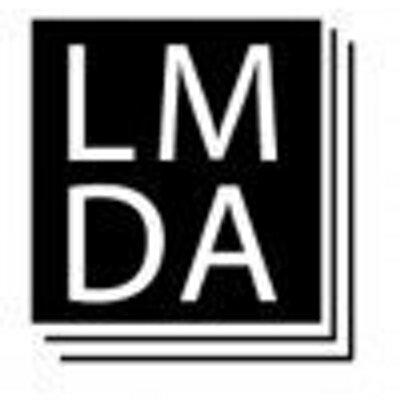
Vicki: That [LMDA directory total] is probably pretty accurate, give or take. We’re usually at around 400 members. And that’s in Canada and the United States and some from the UK and other parts of the world. There hasn’t been a particular survey of dramaturgs in the field that I’m aware of. The reality is that so many of us have titles with so many hyphens these days, people are not necessarily putting themselves into the silos they used to. So how dramaturgs identify is an interesting question I’m very curious about. Something we’ve been talking about at LMDA is how to reach out and how to find a way to connect—LinkedIn is one of the ways to take in who is identifying as a dramaturg, and to make sure that people are aware of this organization.
Jeremy: What are other ways—beyond engaging with each other—that you envision dramaturgs and literary managers most effectively engaging with LMDA?
Vicki: There’s something about valuing and having confidence in the work that we do. A very technical manifestation of that is the employment guidelines LMDA created. Those guidelines remind us to value our copyright on the materials that we create, and acknowledge what our time is worth. And of the basic questions that we need to ask, whether they’re of independent artists, like playwrights asking us to read a play, or a huge organization asking us to work on a show—what value we actually have, not just in dollars and cents, but in our enduring credit on the piece. The guidelines are up on the LMDA Website for anyone to use. That’s something that we felt very strongly would further the field, so we weren’t just going to keep it for members.
There are also grants for members. So many things you can apply to as a director or playwright. The role of artist is defined, and a dramaturg is perhaps a bit outside of that. But the creativity of what we do, and the research and artistic value of what we do or are thinking about and want to discover is great. There is also opportunity for publication in the LMDA Review.
Jeremy: How do you see other industry professionals—playwrights, directors, artistic directors—interacting with LMDA?
Vicki: For me it’s a way to access dramaturgy, being a source of information, so that playwrights, directors, institutions can find out what dramaturgy is, and also connect to dramaturgs.
And I believe building partnerships with other organizations is going to become more and more important. We’re partnering with the National New Play Network to help develop their New Play Exchange. We have this great network of expertise, and I don’t think in the world we’re living in that anyone can just sit on the sidelines and wait for someone to come knock on their door. I’m hoping that engagement between our organization and other organizations will lead to a more robust relationship between what our members do and what other artists in the theatre do, and even beyond the theatre, as well.
Jeremy: What do you see as the role of LMDA in the industry-wide discussion of new play development and best practices?
Vicki: The main focus for me for LMDA, and moving ahead to the next president and beyond, will be on furthering the field. As dramaturgs, we have a way of synthesizing information, asking the right questions, and designing process. That is going to be extremely valuable in developing networks, processes, and projects that are going to allow the theatre to sustain, especially around new plays. There is that difficult conversation about whether dramaturgs are gatekeepers or champions. I know where I stand, which is that I believe that we’re champions of new work. At least, that’s what we should be, that’s what we’re aspiring to and working towards. When I talk about harnessing the experience and knowledge of the membership, I mean how we share that information across the spectrum. And that’s the step that hasn’t necessarily been harnessed yet, so it’s time to have that conversation I think.
I feel like LMDA’s role in the coming years should be a leadership role, in terms of helping to establish support, sustain, and think creatively about the new play networks and systems and processes that we have in place. When we like something, we talk to each other about it. I think people see the system as a sort of vertical chain, where someone gives us the play and then it may or may not get to the top. But there’s actually a horizontal movement that people don’t necessarily see.
You know, we’re a volunteer organization—everybody on the board is a volunteer. We have one part-time staff member. So for a relatively small organization budget-wise, we really need to punch above our weight. That’s something that’s going to be driven on passion and on a shared vision for what we can contribute—which is sustaining a powerful conversation about theatre, whether it’s about new plays or not. My job at this moment is to harness that conversation, and find a way to focus it, so that it has the biggest impact. The way that may manifest itself is more in the dissemination, in partnering with organizations like the National New Play Network, like HowlRound.
Jeremy: Do you see the organization moving away from being volunteer-based?
Vicki: Probably not in my time as president. With the two-year term, there’s only so much you can do. We have to understand better how to focus the resources we currently have, which I think we’re doing and working towards. There may come a time when it’s got a bit more of an infrastructure, but right now, it feels important to keep the infrastructure and the overhead low, so that we can make an impact through our members.
Jeremy: What’s LMDA involvement with NNPN’s New Play Exchange?
Vicki: LMDA is reestablishing our own script exchange program, and working with NNPN on their New Play Exchange. When we heard from NNPN about their project, we thought, “Interesting—we were just thinking of the same thing!” We were working parallel to each other, and now we’re working together.
There are two LMDA executive members on the planning committee for NNPN’s script exchange. They’re meant in both cases to be recommender sites—the point is not to critique every play you’ve ever read; that’s not interesting to us.
I think there probably will end up being some very simple member-driven script exchange that’s on our Website, that goes between members. And then the NNPN exchange, whatever they end up developing that to be, certainly I believe that our members will be a part of contributing to it.
We don’t want to replicate what NNPN is doing. If we get to the point where the NNPN thing is going to be much more effective and our members can contribute to that, then we may just funnel all of our energy there.
Jeremy: And LMDA’s script-exchange will be member-only?
Vicki: Currently we’re conceiving it that way, but I think that one of the things to explore—when I talk about dissemination about the conversations we’re having—is how on a regular basis we highlight one or two of the plays that are in the script exchange.
Jeremy: When do you see this going live?
Vicki: We’re working toward hopefully getting something launched by the time our conference happens in Vancouver this June.
Jeremy: Are there other programs or resource-sharing solutions in the works that you can talk about?
Vicki: We’ve partnered with the American Theatre Archive Project, which was founded to share reports and best practices and disseminate a national archive survey to theatre companies. And to create an archive of our work as theatre artists—which again, is all about promoting the value of theatre. It’s interesting to me, because there are these two impulses in our organization, and one is toward new plays, and one is toward preserving and celebrating our history.
Jeremy: What are some other issues facing literary managers?
Vicki: I think gone are the days—if they ever were those days—where the literary manager just sits and reads plays all day. There are a lot of plays and not as much time as one might like to read them.
And the world where somebody sends a play to a theatre and you read it and then you do it or you don’t, doesn’t necessarily exist the way it once did. Faced with fewer people and resources, it’s becoming even more valuable to connect with others in the play development network, rather than just sitting with your own submission process, which often feels overwhelming given the resources that are available. I think part of the reason people are cutting their literary departments is the perception that the work is already being done elsewhere—at readings and festivals and at new play development centers. The value of having someone in-house is huge, because there still needs to be someone who’s making and managing those relationships, whether it’s with other literary managers and dramaturgs, or with artistic directors or directors or playwrights.
Jeremy: Do you feel the title “literary manager” accurately represents what that role is, or what it ideally should be?
Vicki: I don’t think the term “literary manager” is dead. A lot of what I end up doing is literary management. At a company that’s doing classical or established work, that staff member’s reading is maybe a little bit different than the new play development work, but I do think that as more and more companies turn toward new plays, the term “dramaturg” or “director of new play development” is something that, organizationally, may align more.
Most of us are doing both of those things. In terms of where the focus has been on titles and what people are doing, the “new” tends to get some support and some excitement around it, in a way that the idea of sitting and reading scripts doesn’t necessarily. I don’t know how I feel about it personally, but I think that, if there’s been a shift in the way that we talk about what we do, it probably has a lot to do with where organizations want to focus their energy.
Jeremy: As these roles are evolving and resources are shifting, what do you think is the best thing dramaturgs can do to continue to be employable and useful, to remain champions of new work?
Vicki: Our conference coming up in Vancouver is called “Adapting to Change,” and it’s about what dramaturgs can do to take a leadership role as transitions happen in our culture, because I do strongly feel that dramaturgs are well-positioned to take on leadership roles. It’s a matter of dramaturgs and literary managers acknowledging and stepping up into those roles. There are all sorts of stereotypes I could name about us being bookish and whatever, but sitting in a room reading plays—there’s power in that.
We all need to embrace the value and power of what we do, and that it can lead to transformations. We have to help our organizations and cultures and other artists make sense of it. I feel like that’s what we do for playwrights all the time: we have a conversation—sometimes a difficult conversation—about something that has a lot of moving parts and has a lot of passion behind it, and try to find a way to make it as strong as possible.
The larger call to action here that is much more interesting and important, and uses the full force of what we’re capable of doing is to understand where things have come from, see where they’re at, and help form where they’re going.


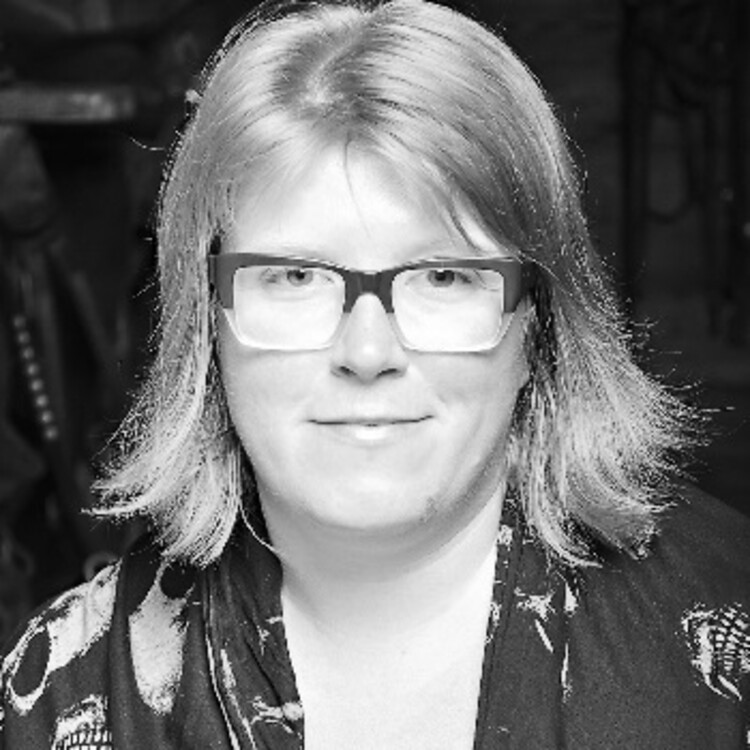

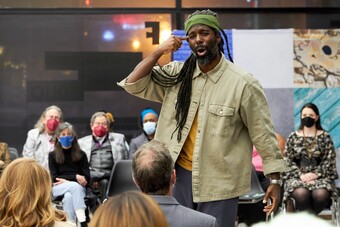




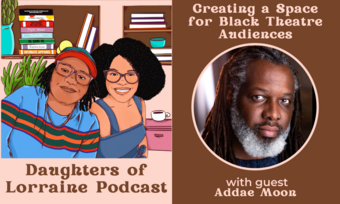



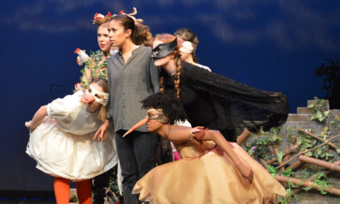


Comments
The article is just the start of the conversation—we want to know what you think about this subject, too! HowlRound is a space for knowledge-sharing, and we welcome spirited, thoughtful, and on-topic dialogue. Find our full comments policy here